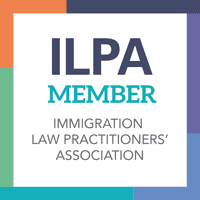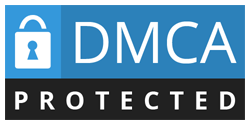
Immigration News, Legislation, News, Sponsorship, Visas
New Salary Thresholds - What are these?
Understanding the New Salary Thresholds and Their Impact
As of 4th April 2024, the UK's Skilled Worker Visa program sees an increase in the general salary threshold, affecting numerous immigration routes. This critical change signifies higher income requirements for visa applicants, with the Skilled Worker route experiencing a substantial rise from £26,200 to £38,700 annually. Employers must now evaluate their compensation packages to ensure compliance while applicants must assess their eligibility under these new financial prerequisites.
The implications of these increased thresholds are multifaceted, impacting organisational hiring strategies, budget allocations, and the attractiveness of the UK job market for overseas talent. Employers may need to adjust their recruitment plans, while potential employees could face more stringent financial barriers to entry.
Decoding the Updated Job Codes and Standard Occupational Classification.
Alongside the salary adjustments, the UK immigration rules have introduced updates to job codes and the Standard Occupational Classification (SOC) system. These revisions require employers to familiarise themselves with the new codes, ensuring that visa sponsorship applications are aligned with the correct SOC designations.
Understanding these updated job codes is essential for maintaining legal sponsorship practices and avoiding potential compliance issues. Employers must invest time in analysing the new SOC codes to match them accurately with the roles they seek to fill with international talent.
The End of the Shortage Occupation List: What It Means for Applicants
The Statement of Changes has led to the dissolution of the Shortage Occupation List, which previously identified roles in high demand within the UK labour market. This significant alteration transforms the landscape for skilled worker applicants, who must now navigate a system without the concessions previously offered by the list.
Applicants must now demonstrate their value and suitability through the updated salary and SOC requirements, potentially making some previously accessible roles more challenging to secure. Employers must also reassess their talent acquisition strategies, particularly in sectors that heavily relied on the Shortage Occupation List.
Transitioning Smoothly: Tips for Navigating the New Rules
The transition to the revised immigration rules demands careful planning and adaptability from both employers and applicants. Employers should conduct thorough reviews of their current and future staffing needs, considering the new salary and SOC requirements, and prepare to guide their prospective hires through the updated application process.
For a smooth transition, we recommend that you seek expert advice, ensure clear communication with affected employees, and that stay abreast of any further guidance from the Home Office. Proactive measures will ease the adaptation process and help maintain a steady flow of skilled workers into the UK.
Employer Actions: Preparing for the Changes and Supporting Your Employees
Employers are faced with the task of digesting and implementing the new Skilled Worker Visa requirements into their HR policies. It's imperative to audit existing sponsorship arrangements, update HR systems with the new salary and SOC information, and inform all stakeholders about the changes.
Providing support to current and potential employees affected by the changes is crucial. This includes offering guidance on the new rules, assisting with visa application processes, and potentially adjusting roles or salaries to meet the new thresholds. By taking these steps, employers can help ensure a smoother transition for their workforce and maintain compliance with the UK's immigration regulations.
UK Visas offer a comprehensive range of services for corporate clients and individuals.
Our immigration and visa application experts will take the time to understand your requirements before recommending the most appropriate service to meet your needs, all at a competitive price.
To see how we can help, contact us today on 01403 801801 or [email protected]












